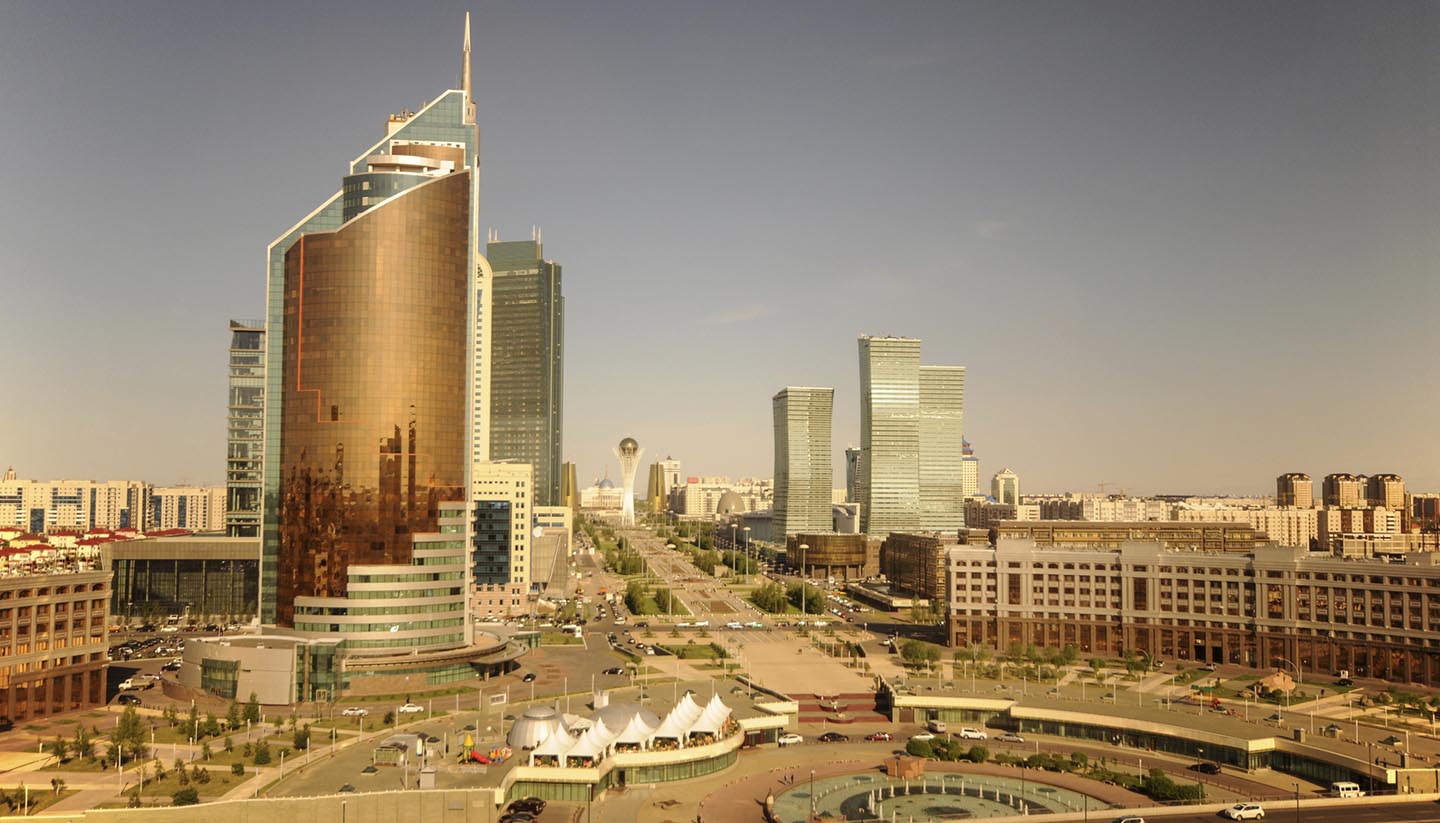Kazakhstan History, Language and Culture
History of Kazakhstan
Kazakhstan's history is a rich tapestry woven from its ancient nomadic traditions and strategic position in Central Asia. Early inhabitants of the region included nomadic tribes such as the Saka and Scythians, who roamed the vast steppes.
The region also played a crucial role in the Silk Road, the vast network of trade routes that linked China, the Middle East, and Europe. Caravans carrying silk, spices, and precious goods passed through Kazakhstan, leaving behind a lasting cultural and economic impact. Even today, remnants of this trade route can be seen in historic sites such as Otrar and Sauran.
In the 13th century, the area fell under the dominion of the Mongol Empire, becoming part of the Golden Horde. By the 15th century, the Kazakh Khanate emerged, consolidating various nomadic groups and laying the foundation for modern Kazakh identity. However, internal divisions and external pressures led to parts of Kazakhstan being gradually annexed by the Russian Empire during the 18th and 19th centuries.
Following the 1917 Russian Revolution, Kazakhstan underwent several administrative changes, eventually becoming the Kazakh Soviet Socialist Republic in 1936. During this period, the region experienced significant industrialisation and demographic shifts, partly due to Soviet policies and forced relocations.
Kazakhstan declared its independence from the Soviet Union on 16 December 1991, marking the beginning of its journey as a sovereign nation. Since then, it has pursued economic development and established itself as a key player in Central Asia.
Did you know?
• The Baikonur Cosmodrome in southern Kazakhstan is the world's first and largest space launch facility.
• Kazakhstan is the world's largest landlocked country. Despite having no coastline, it has a vast network of lakes and rivers, including the Caspian Sea, the world's largest inland body of water.
• Apples originated in Kazakhstan. The modern apple traces its roots to the Tian Shan mountains near Almaty, where wild apple trees still grow.
Kazakhstan Culture
Religion in Kazakhstan
Muslim (69.3%), Christian (17.2%), Atheist (2.3%), Undeclared (11%), Others (2%).
Social Conventions in Kazakhstan
Kazakhstan is a hospitable and culturally diverse country where respect and politeness are highly valued. Hospitality is central to Kazakh culture, and guests are often welcomed with tea and food, which should always be accepted as a sign of appreciation. When greeting someone, a handshake with the right hand is common among men, while a slight nod or placing a hand over the heart is a more traditional greeting for women.
Modesty in dress and behaviour is appreciated, particularly in rural areas and religious settings. While urban centres like Almaty and Astana are modern and cosmopolitan, visitors should still be mindful of local customs, such as removing shoes before entering a home. In traditional households, men and women may be seated separately during meals.
Kazakh society values respect for elders, and it is customary to greet older individuals first in a group. Public displays of affection are generally avoided in rural areas but are more accepted in major cities. While Kazakhstan is a secular state, Islam plays an influential role in cultural traditions, and visitors should be mindful of religious practices, especially during Ramadan.
When taking photographs, it is polite to ask for permission before photographing people, especially in rural or religious settings.
Tipping is not obligatory in Kazakhstan but is increasingly common in tourist areas, restaurants, and service industries. In mid-range and upscale restaurants, a 10% service charge may be included in the bill; if not, rounding up the bill or leaving 5-10% is appreciated. In cafés and casual eateries, tipping is not expected, but leaving small change is a kind gesture. Taxi drivers do not typically expect tips, though rounding up the fare is common. Hotel staff, such as porters and housekeeping, appreciate small tips for good service. In guided tours, tipping the guide and driver (around KZT 1,000–3,000 per day) is a courteous way to show appreciation.
Language in Kazakhstan
Kazakhstan is a bilingual nation, with Kazakh designated as the state language and Russian holding official status. English proficiency in Kazakhstan is relatively low.
Phrases
Hello – Сәлем! (Salem!)
Goodbye – Сау болыңыз! (Sau bolyńyz!)
Please – Өтінемін (Ótinemin)
Thank you – Рақмет! (Rakhmet!)
Yes / No – Иә (Iä) / Жоқ (Joq)
Excuse me / Sorry – Кешіріңіз (Keshiriniz)
I don't understand – Мен түсінбеймін (Men túsinbeimin)


